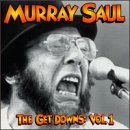 Etgar Keret is an Israeli writer who lives in Tel Aviv. I stumbled onto his work while ordering graphic novels for the library: he writes funky short stories (comparisons to everyone from Ray Carver to Gogol to Kelly Link), but also dabbles in comics and screenwriting. Here’s a few words from an article about him:
Etgar Keret is an Israeli writer who lives in Tel Aviv. I stumbled onto his work while ordering graphic novels for the library: he writes funky short stories (comparisons to everyone from Ray Carver to Gogol to Kelly Link), but also dabbles in comics and screenwriting. Here’s a few words from an article about him:
In his homeland of only five million Hebrew readers, Keret’s four collections of stories have sold more than 200,000 copies in all….His books are the most stolen volumes from Israeli bookstores, and he’s the most widely read writer in prisons. “A lot is to do with their attention spans,” Keret says of his fans behind bars. “They like my stories because they’re short.” His pithy sentences and blunt prose rarely propel his cameo tales beyond a few pages—a feature of his writing Keret traces to his asthma. “When you are having an attack and say to somebody, ‘I love you very much,’ you could, instead of ‘very much,’ say, ‘Call an ambulance.’ You don’t have time to bullshit.”
I picked up his book THE BUS DRIVER WHO WANTED TO BE GOD. Keret writes a weekly column called “Citizen K” over at nextbook.org. The site also has a reading and interview with Ira Glass. A new film called Wristcutters is based on one of his novellas.
Seems like a cool dude.

 My fiction teacher in undergrad bugged me for almost three years about
My fiction teacher in undergrad bugged me for almost three years about  I’ve eaten two Christmas dinners with Murray Saul, and I can tell you, he’s a helluva guy.
I’ve eaten two Christmas dinners with Murray Saul, and I can tell you, he’s a helluva guy.